For the featured image in this article, I “borrowed” the picture from the official FIDE Candidates 2020 website
I have been meaning to write this post for a while. Considering that the annual January Tata Steel chess tournament recently finished, I thought it might be a good moment to take stock and try to predict the outcome of the FIDE Candidates Tournament 2020.
Hope you will enjoy it!
The format and the venue
So, from March 15 to April 4, FIDE Candidates Tournament will be held in Yekaterinburg, Russia. The tournament will be a double round-robin – 8 participates will play 2 games against each other, one with the White pieces and one with the Black pieces, amounting to a total of 14 games.
Time control is rather “long”: 100 minutes for the first 40 moves, with additional 50 minutes gained after move 40, and 15 minutes gain after move 60. Starting from move 1, the standard 30 seconds increment is included.
The Candidates tournament is an “all-or-nothing” event – the winner will gain the right to challenge Magnus in the World Chess Championship 2020 match (which will be held toward the end of 2020). The other seven participants will go home1 and watch the match in front of their TV screens2 (or computer screens, considering that Twitch is the new standard for the World Championship matches).
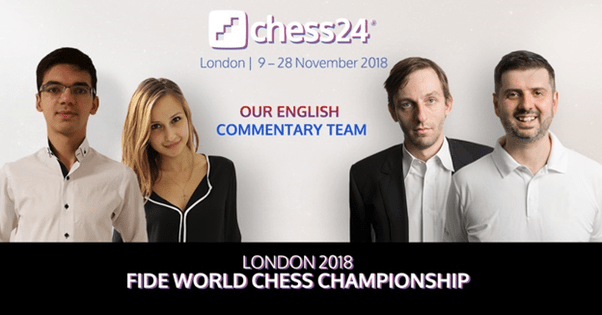
Participants
As mentioned above, the lineup of the Candidates tournament comprises a total of 8 players. Clause 2 of the FIDE regulations for the Candidates tournament describes the qualification criteria in great detail. In any case, for the 2020 edition of the Candidates tournament, the following players are eligible to participate:
- Fabiano Caruana – 2018 World Championship runner-up
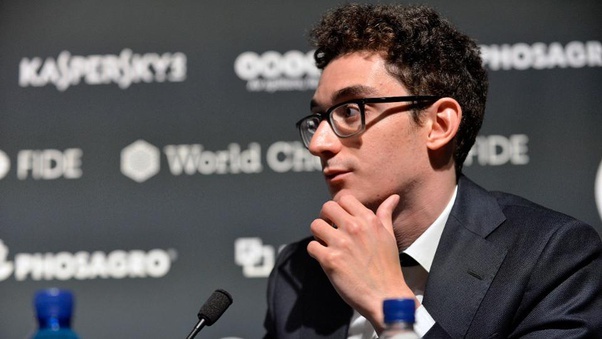
- Teimour Radjabov – 2019 World Cup winner
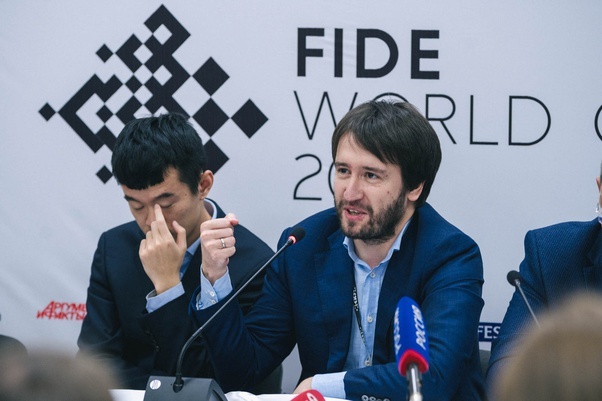
- Ding Liren – 2019 World Cup runner-up
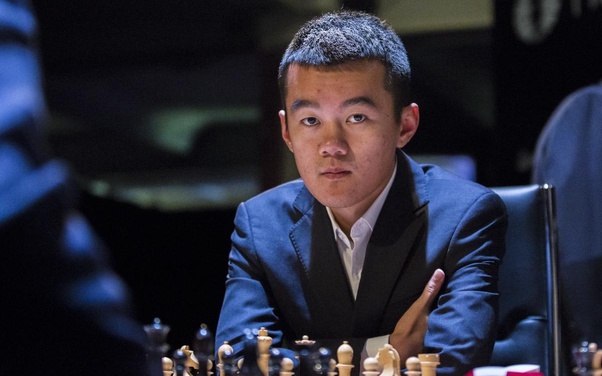
- Wang Hao – FIDE Grand Swiss Tournament 2019 top finisher (winner), who hasn’t qualified by one of the above two methods and is not Carlsen himself 😀 (Carlsen played in FIDE Grand Swiss Tournament, which is a paradox in itself)
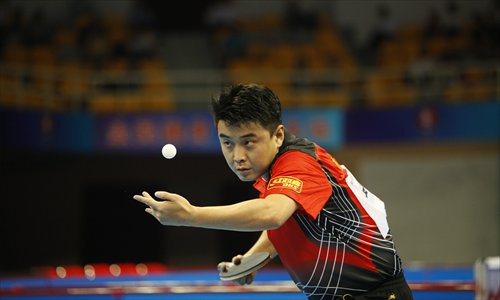
Erm, sorry, that’s the wrong Wang Hao – former table tennis World Champion and Olympic silver medalist. Here is the right one:
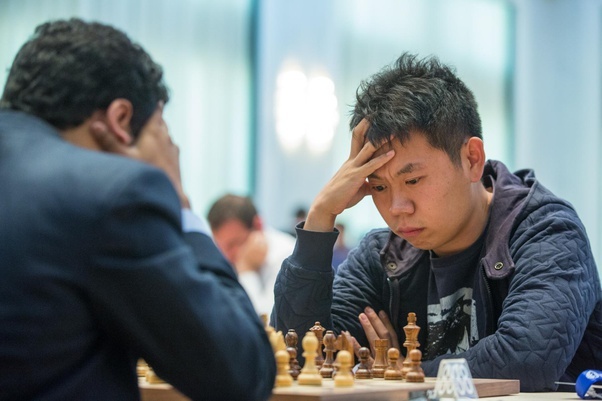
- Alexander Grischuk – winner of the FIDE Grand Prix 2019
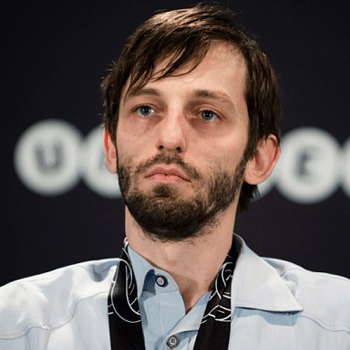
- Ian Nepomnhiachtchi – runner-up of the FIDE Grand Prix 2019
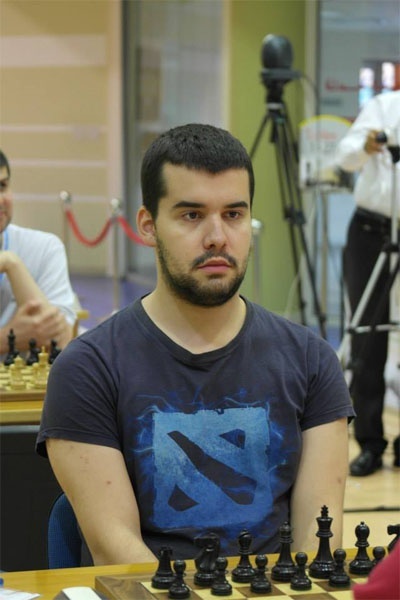
- Anish Giri – highest average rating in the period between February 2019 and January 2020
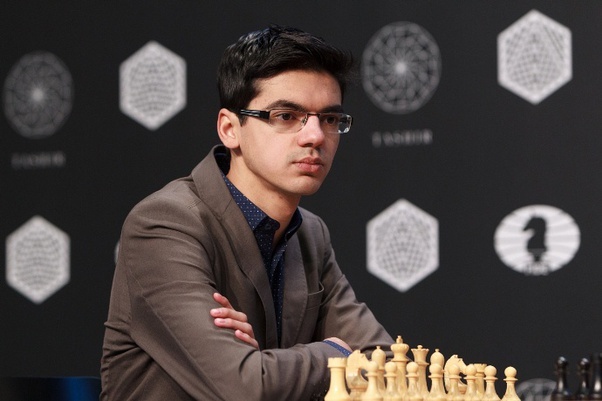
- Kiril Alekseenko – wild card selected by the organizer, subject to eligibility criteria. Alekseenko was eligible for the wild card based on his performance in the FIDE Grand Swiss Tournament 2019, although his selection has caused some controversies, as will be pointed out later in this answer.
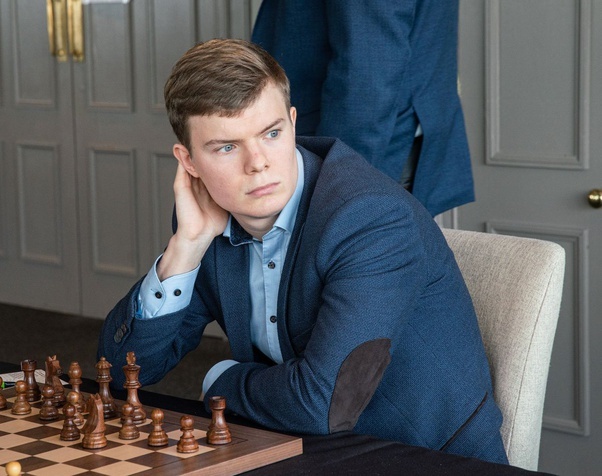
Now that we know the names (and the faces), I’d like to take a moment to talk about my estimation of each player’s chances in the upcoming tournament.
Predictions
-
Fabiano Caruana
Even before Tata Steel, Fabiano Caruana has been considered as one of the pre-tournament favourites, together with Ding Liren.
His playing strength and accolades are well known. He has been one of the strongest players in the world for years, he has won a number of super tournaments and he proved to be Magnus’ equal in the previous World Championship match.
Another factor I think is very important is – Caruana already has a lot of experience playing in the Candidates tournament (this is his third time) and he proved that pressure doesn’t affect him all that match. He came second in 2016 (losing to Karjakin in the final round because he was forced to play for the win with the black pieces) and he won convincingly in 2018.
Another reason Fabi’s fans have a lot of ground for optimism is his Tata Steel performance. 10/13, +19 rating points, 2900+ performance, would all be impressive even if it were a regular tournament. But when you also consider he might have been hiding his preparation, it was just a surreal performance.
There is even an “urban myth” that previous Candidates winners traditionally perform poorly in Tata Steel – Caruana himself had a terrible tournament in 2018.
Will he be able to break this “curse”? It remains to be seen.
-
Teimour Radjabov
Radjabov’s win at the World Chess Cup qualification for the Candidates Tournament 2020 is probably one of the biggest upsets in the entire history of chess.
Even though he was one of the strongest players in the 2000s and at the beginning of 2010s, he has disappeared from the scene in recent years. He didn’t play much at all and has openly talked about how he lost the drive for chess and how he is considering retiring/doing something else.
Even after the qualification for the Candidates, he made some…strange remarks. For example, he initially said he doesn’t yet know if he will participate (?!). 3
Therefore, when you consider his inner struggles, the fact that he was a very solid player even at the height of his powers (drawing more often than winning) and that he wasn’t as active in the recent years, it is clear why he is considered as one of the outsiders.
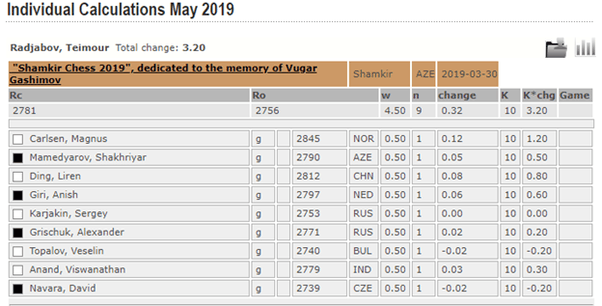
(Performances such as this one don’t win you tournaments. Source:FIDE)
On the other hand, he is devilishly talented and during the World Cup, he reminded everybody of his strength.
So, who knows. Maybe he will defy all expectations and do well.
-
Ding Liren
Together with Caruana, Ding Liren is considered as the main favourite to win the tournament. Before Tata Steel, I even thought this might be his year, but consider how Caruana played there, I am not so sure any longer :D.
Ding is currently the world number 3, he has had a very good 2019 (World Cup finalist, Sinquefield Cup winner, beating Magnus in the tiebreak) and is just generally regarded as an ultra-strong player.
It is well known that he is very solid and that he rarely loses games. Whereas this is, without denying, an important trait of a chess player, for a tournament of this caliber this might actually be a deficiency. For example, in the previous edition, Ding didn’t lose a single game, but just won 3 of them, finishing only fourth. Already back then, some people commented that he is too solid.
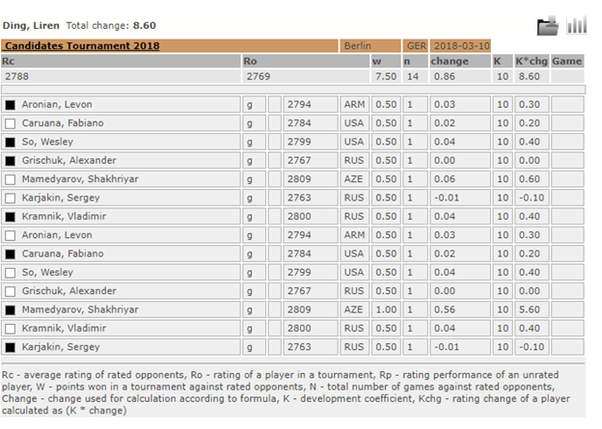
(A bit too solid to win the event of this caliber. Will Ding manage to increase the risk margin, but not overstep it? Source: FIDE)
He did adjust his style a bit recently and started winning more, but it will be very interesting to see his approach in March. Will he be able to defy his character and risk more, will that lead to him risking too much, or will he once again (over)focus on not losing? It remains to be seen.
-
Wang Hao
Apart from Ding Liren, China will have the second candidate for the first time in history. And whereas it was not surprising to see Ding’s name on the list, Wang Hao’s qualification was as equally unexpected as surprising as Radjabov’s.
In a way, there are similarities between Wang and Radjabov. Both are huge talents, who were once members of the world elite who then almost disappeared from the elite circuit. Both seem to struggle with the motivation and professional approach to chess 4 and for both, the qualification for the Candidates represented a sort of a comeback.
Therefore, Wang Hao can – just like Radjabov – be definitely regarded as an outsider. Especially since he is Chinese – I get the feeling that Ding Liren is more likely to receive the full support of the federation (just like, say, Botvinnik got it in Soviet times), because
A) He is the stronger player and has greater chances of winning the tournament
B) I remember reading somewhere how Wang Hao lamented that Chinese players have to turn their prize money to their Federation/Government. I wouldn’t say that this open criticism is received too well in his homeland.
Of course, it may be pure speculation and Wang might become the next challenger. Time will tell.
As for those worrying about whether having two Chinese players in the same tournament might lead to potential collusion, I don’t think it is very likely:
-
Alexander Grischuk
Apart from clear favourites Caruana and Ding and clear outsiders (Radjabov, Wang Hao, Alekseenko), I’d divide the rest of the players into the third group – those I don’t expect to win the event, nor to be last.
Grischuk falls into this category. His class as a player is undoubted and he has been a regular World Championship Candidate for almost a decade (he famously lost to Gelfand in the final of the 2012 cycle and he participated in 2014 and 2018).
However, even though he is always there somewhere, he has never been close to qualifying for the match (nor is he winning super tournaments on a regular basis). It is hard to say what is that little something that is missing. Depth of opening preparation? Nerves in critical moments? Weird handling of the clock?
I really don’t know. And I really don’t care. His chess performance during the Candidates tournament is secondary to his regular press conference comedy routine. Who would forget all those hilarious “Yes, I can read” and “Mr. Ding” remarks from Berlin 2018. 😛
Candidates tournament without Grischuk wouldn’t be the same.
-
Ian Nepomniachtchi
Even though my impulse is to put Nepo in the same category as Grischuk and Giri (not the favourite, not the outsider), his performance is most difficult to predict.
I think that Nepo, as a player, is more dependant on his emotions than some other top players. I think he is more likely to go on fire when things are going really well and more likely to have a disastrous set of results once things don’t go his way.
His performance at Croatia Grand Chess Tour 2019 is a perfect example. After winning first three games and leading the event, something went wrong in the middle of everything and Nepo collapsed (although it has to be said he had suspicious positions and a lot of luck in the first three games, as well):
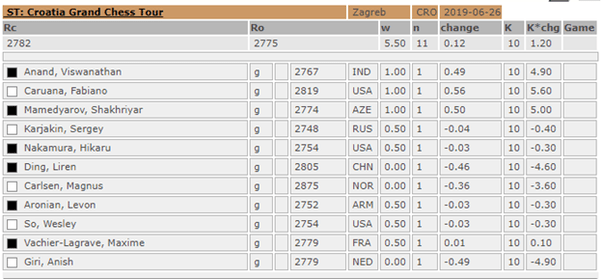
His manner of play is also something that makes him unpredictable. Compared to all other players in this tournament, Nepo lands in dubious positions more frequently (sometimes result of his superficial play, but maybe also the consequence of somewhat inferior opening preparation ?). However – just like in the first three games of the Croatia Grand Tour – he often manages to extricate himself from danger. There is a reason he is regarded as a very tricky player.
In an event such as Candidates, this might be a double-edged approach. On one hand, the importance of an opening preparation in such an event is increased. On the other hand, his tenacity and defensive skill might make it more difficult to his opponents to finish him off – sometimes that is already difficult in itself when the nerves are operating and the stakes are high.
In any case, it will be interesting to follow his play. Even though I’d like Caruana to win in order to provide us with a close Wch match, and even though I also like Wang Hao because he likes anime and video games, Nepo has long been my favourite and seeing him challenge Magnus would put a big smile on my face :).
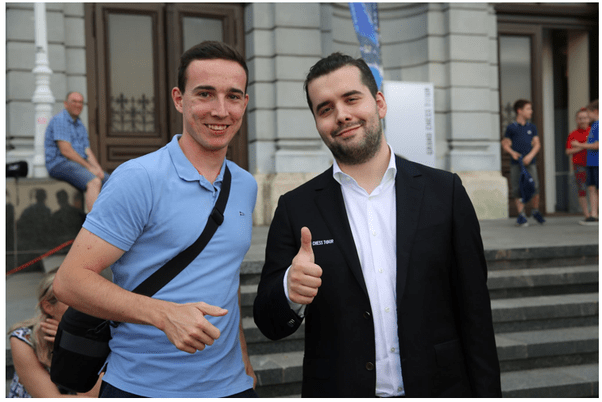
-
Anish Giri
Anish Giri is often mocked in the chess community as a “drawing master” who “never wins super tournaments”. As usual, there is some truth in these overly used jokes because Giri is in a way, just like Grischuk – always somewhere close to the top, never quite climbing it.
However, due to his reputation, people often underestimate him and reach conclusions a priori, without even looking at his games. For example, the drawing jokes were all the rage after the Candidates tournament 2016, where Giri scored the “perfect” 14/14 in terms of drawn games.
Alas, many people forget he reached a number of winning positions, such as in his 9th round game against Caruana:
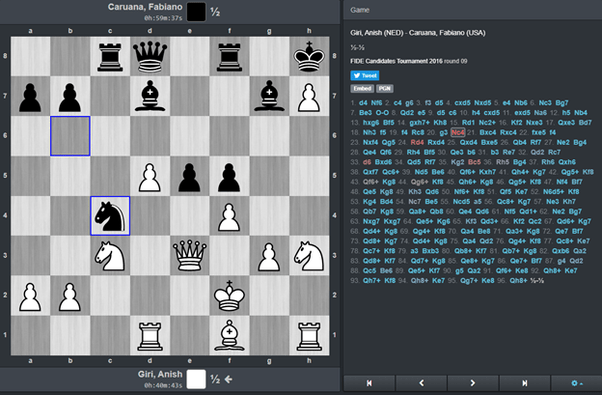
(White is completely winning here. The engine gives +3 for White)
Or in his 11th round game against Nakamura:
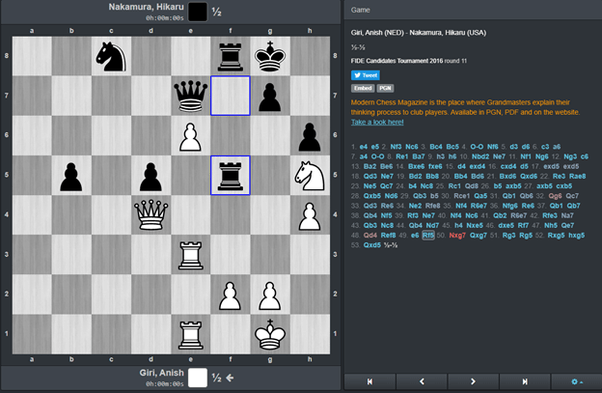
(Here, 50 Re5 seems very promising, although it is not easy to calculate and evaluate the consequences of taking on f2. Giri forced a draw instead)
So yeah, even though he is not the nr. 1 contender, we shouldn’t forget he can be very dangerous and that his opening expertise might land him in several good positions during such a long tournament.
If he starts converting them, we might be in for a surprise.
-
Kiril Alekseenko
Last but not least, the clearest outsider is the wild card nominee Kiril Alekseenko.
Alekseenko become eligible for the wildcard on the basis of his performance in the FIDE Grand Swiss tournament and basically got invited because he is Russian – the company sponsoring the Candidates tournament insisted on this and, as usual, the money decided the issue.
His invitation caused some controversy. Many felt a player who is currently nr. 37 in the world and who only recently broke the 2700 rating barrier shouldn’t get a place in an elite event such as Candidates tournament. French chess fans were especially devastated that their fan, Maxime Vachier Lagrave, once again missed the qualifying spot, despite being incredibly close on several occasions (he was second on rating, he lost in the semifinal of the World Cup and he came in third in the FIDE Grand Prix).
Maxime’s manager even wrote an open letter to FIDE, appealing for a match between Alekseenko and Maxime to determine the final spot, but in vain.
In a way, nobody can blame Alekseenko for anything. He got his chance and he took it. But his qualification should raise a question about the current qualifying system and whether it is a good time to abolish the wild-card concept whatsoever.
In any case, I don’t estimate Alekseenko having any chances for winning the tournament whatsoever and, quite frankly, anything than him coming last would be a huge surprise for me.
Conclusion
To be honest, compared to the previous editions, I feel that this year’s edition of the Candidates tournament is a bit uneven – at least of paper. It was very surprising to see Wang Hao and Teimour Radjabov qualify – both players haven’t been members of the world elite in the years prior to 2019 (and it was an impression they don’t take chess up as seriously and professionally as their colleagues). Also, there is no denying that Kiril Alekseenko is a clear outsider.
It is very easy to pick the pre-tournament favourites (Caruana and Ding), players who nobody expects to have serious chances (Wang Hao, Teimour Radjabov, Kiril Alekseenko) and those “inbetweeners”, who are expected to reside in the middle of the tournament table (Grischuk, Giri). Arguably, Ian Nepomniachtchi also belongs to this category, although he might be a sort of a “dark horse” of the tournament.
Of course, there is a high probability that all these predictions and speculations will fall into the water once the actual play begins. A number of other factors will play a crucial role – how the players will be able to handle the pressure and control the nerves, how lucky they will be with their choice of openings and catching their opponents in prepared variations, whether they will be on form or not, whether they will play too recklessly against Alekseenko because they expect to beat him, etc.
In any case, considering that the previous Candidates tournaments were bloodbaths with a huge number of decisive games, I think the 2020 edition will be the most exciting and dramatic tournament of the entire year.
Can’t wait for it to start! 🙂
- Albeit with a nice amount of money in their bank accounts – according to FIDE regulations for the Candidates tournament, the minimum prize fund will be 500,000 euros. I have been unable to find the information about the exact amount and the distribution of the prizes
- Or, in case of Anish Giri and Alexander Grischuk, in front of a broad audience on chess24
- Source: FIDE Chess World Cup: Radjabov Knocks Out MVL, Qualifies For Candidates
- I remember reading an interview with Wang Hao, where he said he spends more time on video games than he should. He also shows his affection for them in this interview, where he states children would be better by playing video games than chess in an early age.

